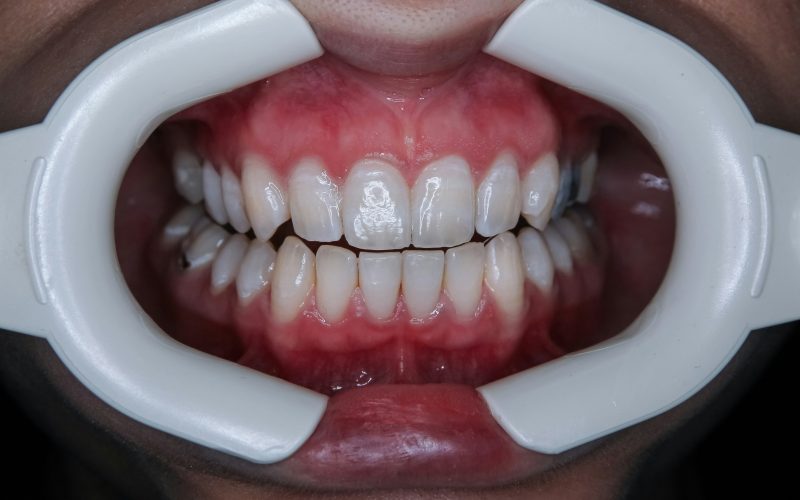Introduction
Most of us know that HPV is linked to cervical cancer, but what about its impact on the mouth? The truth is, oral HPV infections are more common than people realize, and sometimes they show up in the form of small growths on the tongue. While they may appear harmless, it’s worth asking how these warts might be connected to something more serious.
By understanding the connection between tongue warts and cancer, you can better recognize what’s normal and what deserves medical attention. Oral HPV doesn’t always cause problems, but when certain strains linger, they can increase the risk of oral cancers.
In this article, we’ll look at how oral HPV develops, how tongue warts form, and the real risks involved, along with steps you can take to protect your health.
What Exactly Is Oral HPV?
Oral HPV refers to a type of human papillomavirus infection that affects the mouth and throat. There are over 100 types of HPV, but only a few strains can lead to warts or cancer. Most oral HPV infections go unnoticed because they cause no pain or visible changes. However, in certain cases, the virus can cause small growths or patches on the tongue, lips, or inside the cheeks.
Moreover, oral HPV is most often spread through direct contact, usually oral sex, though kissing may also play a role. The body’s immune system typically clears most HPV infections within one to two years. However, when the infection persists, the risk of developing precancerous changes increases.
It’s important to understand that not everyone with oral HPV develops cancer. Still, recognizing risk factors and symptoms helps you take action early.
How Do Tongue Warts Develop?
Tongue warts caused by HPV are typically small, raised, and painless. They may appear as tiny, cauliflower-shaped bumps or smooth, flat patches. While they can appear anywhere in the mouth, the sides of the tongue and the back of the throat are common spots.
Key traits of tongue warts include:
- A flesh-colored or slightly white appearance
- Small size, often a few millimeters wide
- No pain in most cases
- Growth in clusters rather than alone
Additionally, some people may never notice tongue warts because they remain very small. Others may confuse them with canker sores or irritation from biting the tongue.
Although most warts are harmless, persistent ones should be checked by a dentist or doctor. That’s because certain high-risk HPV strains can cause cell changes that lead to cancer in the tongue, throat, or tonsils.
The Link Between Oral HPV and Cancer Risk
Now let’s connect the dots. Oral HPV alone doesn’t equal cancer, but certain strains create conditions where cancer can develop. High-risk HPV types, such as HPV-16, have been strongly linked to cancers of the oropharynx, which includes the base of the tongue, tonsils, and throat.
Research shows that:
- HPV-related oral cancers are rising, especially in younger adults
- HPV-positive oral cancers respond better to treatment compared to non-HPV-related cancers
- Men are more likely than women to develop oral HPV-related cancers
Moreover, the time between initial infection and cancer development can be many years. This slow process explains why many people are unaware of their risk until symptoms become severe.
Signs of possible cancer development may include:
- A sore in the mouth that doesn’t heal
- Difficulty swallowing or a persistent sore throat
- Changes in voice or hoarseness
- Lumps in the neck
Therefore, while tongue warts themselves are usually harmless, the presence of oral HPV should never be ignored. Understanding this link helps you take preventive steps before the virus causes long-term problems.
Who Is at Higher Risk?
Not everyone exposed to HPV develops oral warts or cancer. However, certain factors increase the likelihood.
You may be at higher risk if you:
- Have multiple oral sex partners
- Smoke or use tobacco products
- Drink alcohol regularly
- Have a weakened immune system
- Are male, since oral HPV is more common in men
Additionally, age plays a significant role. People over 40 tend to face higher risks, especially if other lifestyle factors are present.
However, risk does not guarantee disease. Many individuals with oral HPV never develop warts or cancer. The immune system often clears the infection naturally. Still, being aware of your own risk level gives you the power to make smarter health decisions.
How Can You Protect Yourself?
Preventing oral HPV and its complications is possible, and the earlier you act, the better.
Helpful protective steps include:
- Vaccination: The HPV vaccine is highly effective against the strains most likely to cause cancer.
- Safe practices: Reducing the number of oral sex partners lowers exposure risk.
- Regular screenings: Dental visits can help detect unusual changes in the mouth.
- Lifestyle changes: Quitting smoking and limiting alcohol lowers cancer risk.
Moreover, practicing good oral hygiene supports a healthier mouth environment. Brushing, flossing, and regular checkups don’t stop HPV itself, but make it easier to catch changes early.
Therefore, prevention isn’t just about avoiding infection; it’s also about strengthening your body’s natural defenses and catching warning signs before they progress.
Also Read: 5 Common Discoid Lupus Conditions You Should Know About
Oral HPV Symptoms vs Oral Cancer Symptoms
Distinguishing between mild HPV symptoms and possible cancer signs can be confusing. Here’s a simple breakdown:
Oral HPV symptoms often include:
- Small, painless tongue warts
- White or flesh-colored bumps in the mouth
- Mild irritation but no major discomfort
Possible oral cancer symptoms may include:
- A sore that doesn’t heal after two weeks
- Unexplained bleeding in the mouth
- Persistent sore throat or difficulty swallowing
- A lump on the neck or under the jaw
On the other hand, many oral HPV infections cause no visible warts at all, which is why screening becomes critical.
Therefore, if you notice persistent symptoms that don’t improve, consult a healthcare professional immediately. Early detection makes treatment more successful, especially in HPV-related oral cancers that typically respond well to therapy.
Conclusion
Oral HPV and cancer risk are closely connected, but awareness makes a huge difference. While most HPV infections clear naturally, some can persist and increase the risk of oral cancers. Recognizing tongue warts, practicing prevention, and seeking timely care all help reduce your chances of serious complications.
If you’ve noticed suspicious spots or persistent sores in your mouth, don’t ignore them. A quick visit to a dentist or doctor can provide clarity and reassurance.
For those interested in advancing research and exploring new treatment opportunities, you may also choose to participate in advanced wart studies. Your involvement could not only benefit you but also contribute to better care options for others in the future.








